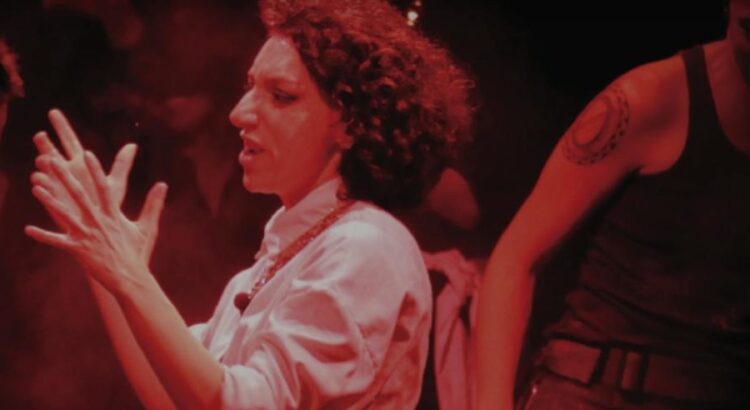**featured image from UMS.org
8:00pm • Friday, February 3, 2023 • Arthur Miller Theater
I feel that I did Our Carnal Hearts an injustice in my preview for the show by calling it a “comedy performance,” because it contained so much more. There were moments of humor, but it was the kind of humor that is a bit uncomfortable, the sort necessary to make a difficult reality easier to swallow. The show dealt with the un-picturesque reality of human jealousy and competitiveness in an age of both unprecedented wealth and heightening economic disparity, made starkly visible by a performative social media culture. Rachel Mars rendered envy both relatable and ridiculous, both a vindication of those with reason for envy and a criticism of an upper class with everything that still demands more.
Much of the performance conveyed a sense of frustration, maybe even righteous anger, that felt like a justification for jealousy. For example, Mars’ use of “Paper Planes” by M.I.A. with its repetitive “All I wanna do is… (gun shot, shot, shot, reload, cash register) and take your money” and the song’s connotations of barriers to immigration and work, advanced the social themes of the performance. In another scene, Mars repeated the mantra, “Congratulations, I’m so happy for you,” her throat constricting with pent-up anger until it was more of a forced wheeze than a well-wish.
One of my favorite elements of the performance drove home the point that envy can be gratifying, but in the end it is a two-way street. It began with an eerily mocking song from the three vocalists. Mars walked out into the audience and took a seat and, speaking to the guest next to her while the sound system broadcast their “conversation” to the rest of us, introduced the premise. A fairy has arrived at your doorstep, and told you that finally, out of everyone else in the world, you have been chosen to receive a wish–but there’s a catch. Whatever you wish for will be delivered to your neighbor twofold. Assuming the voice of our collective unconscious, Mars rallied off all the riches and glories we would like to receive–before doing a double-take, recalling the catch. At that point, her jealousy got the best of her and she scrapped all of those nice ideas–instead, Mars suggested, give her mild depression. Take away half her money. Cut out one of her legs, or better yet, one of her kidneys. We all laughed, but near the end of the performance, the lights lowered, and Mars began again. A fairy has arrived at your door, but this time, it says, “I’ve just come from your neighbor’s house…”
Our Carnal Hearts gave me a lot to think about in terms of the role of jealousy in my own life, how “envy” can be a misinterpreted reaction to injustice, and who is “permitted” to feel envious. Jealousy and revenge are eternally salient themes in the world of art, and I enjoyed Mars’ modern interpretation.


